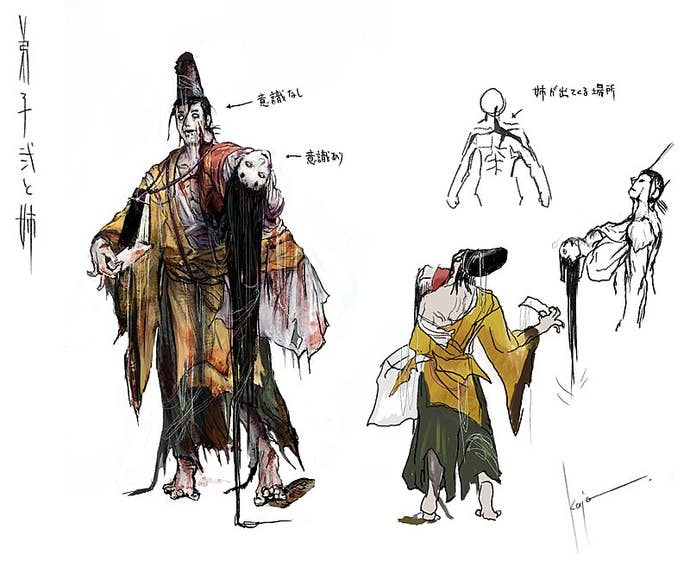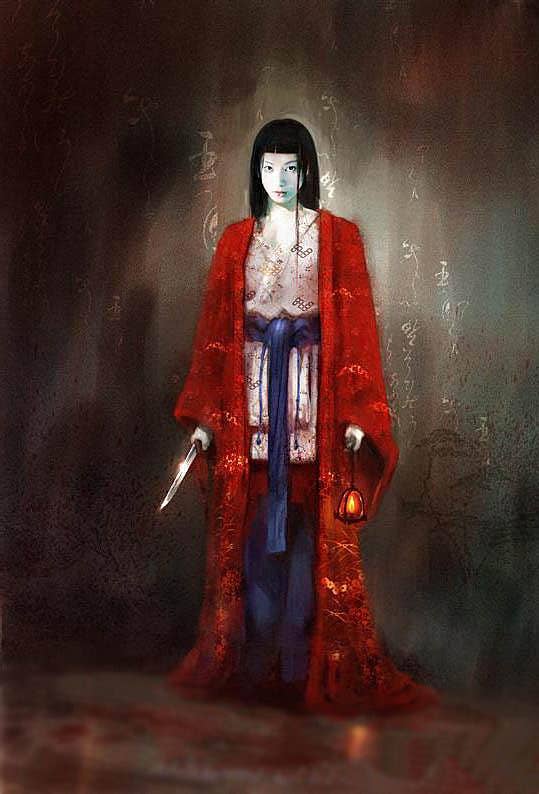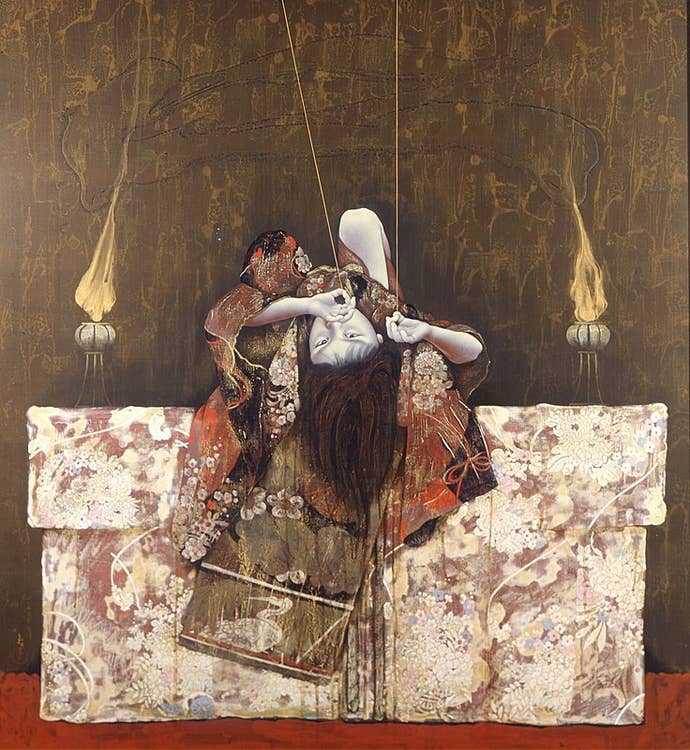My Silent Hill to die on.
Each of its recent games have been genre defining behemoths many wouldn’t hesitate to call masterpieces.
Whole genres live in the shadow of Demon’s Souls and Dark Souls, reshaped in their image.

It does blind us to the gems the studio crafted before their cultural juggernaut came along though.
Which is fitting since Kuon is a game all about resurrection.
Like the approach to immortality taken in From Software’s more recent games, this process is horrific.

An affront to nature itself that decays the world around it.
A disease that stems from the rich and powerful and works its way down.
The servants, we learn, were among the last to be effected.

Players explore the manor in multiple roles, with two campaigns and a third unlocked after their completion.
Their overlapping stories interweave in a manner not unlikeResident Evil 2’s lauded campaigns.
You start as Utsuki, a young woman trying to find her father on behalf of her sickly sister.

Her father is an onmyōji, which the English translation simplifies as an exorcist.
As jobs go, it was pretty cushy for the time.
Birth/death, growth/decay, masculine/feminine.
All things in balance.
This rooting in real beliefs and folklore gives Kuon a richness not easily replicated.
Its ideas are so intricately woven, lending its supernatural story a coherence players can ground themselves in.
Its specific notion of the supernatural isn’t just for the story.
Your main defence against the supernatural are paper cards.
Combat is the weakest component, I can’t deny it.
It didn’t help that Kuon released in 2004 with the revolutionaryResident Evil 4right around the corner.
In 2022 though, after almost two decades of Resi 4’s inescapable influence, Kuon feels fresh.
It puts its visuals and atmosphere first and foremost.
Enemy encounters are infrequent, as are puzzles.
A story lead entirely by women.
Doing so requires her to defy qualities she’s expected to have: Meekness and attractiveness.
Utsuki undergoes a transformation which breaks her free of the mould she was raised into.
It’s not hard to read the affection these two young women have towards each other as romantic.
Queerness becomes just another part of their defiance against the conservative society around them.
The third, unlockable character is perhaps the game’s most subversive.
Abe no Seimei was a real historical figure and importantly, a man.
Yet in Kuon, this legendary onmyōji is a woman.
Her campaign literally stands apart from the established balance of Yin and Yang.
The game cautions against the very act of resurrection.
Things have to come to an end, nothing can go on forever.
It’s a recurrent theme in the studio’s work, especially in the Dark Souls series.
So perhaps Kuon is never meant to return.
Especially since tracking down a physical copy is an ordeal, with the game never officially re-released.